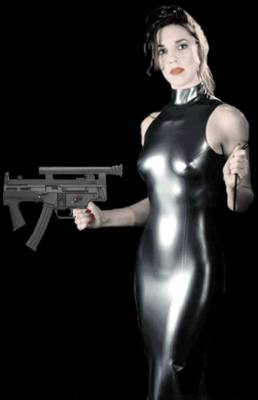The BlackHammer CyberPunk Project
- H i R i s e : 2 0 2 0 -
Please note that the following is not fact nor is it meant to say that my style of GMing is better than yours. It is meant to express my opinion of the topic at hand. Some of the following you may find offensive or insulting, I assure you it was not meant to be such. So lets all be adults and take this article for what it's worth, "Just some chicks opinion of the game CP2020". With that said I now present you with, High Rise 2020 by: M0nolyth. Thank You and Enjoy.

